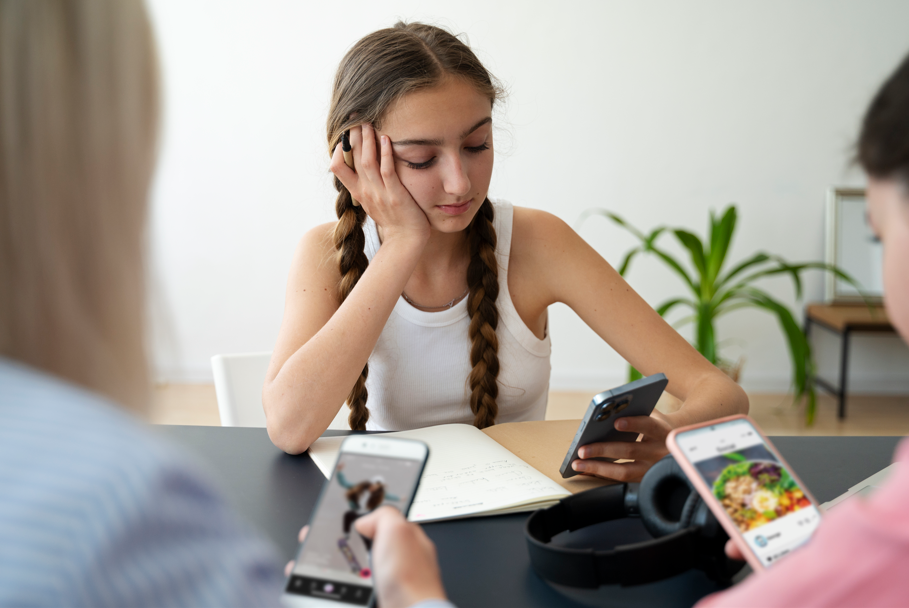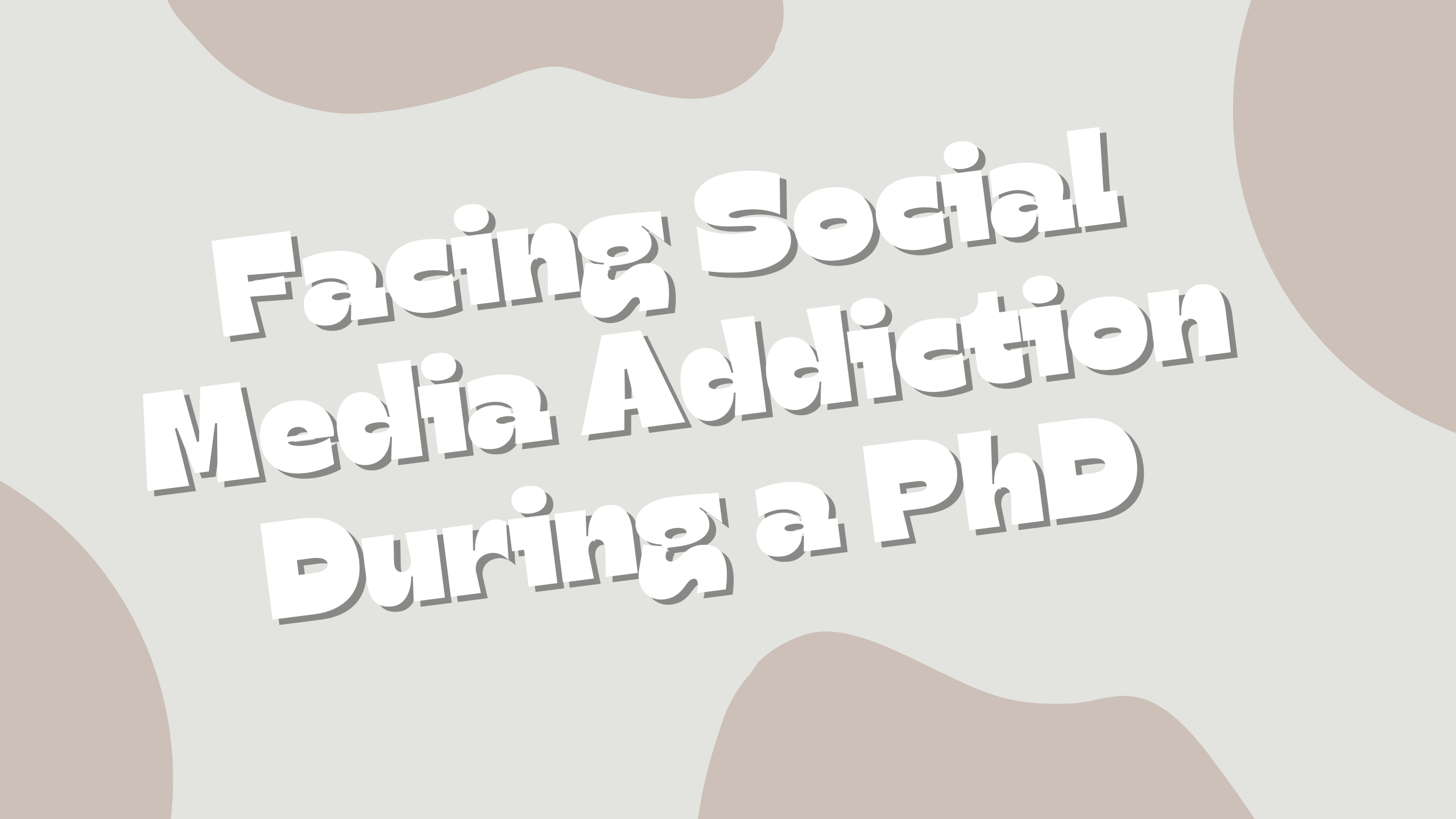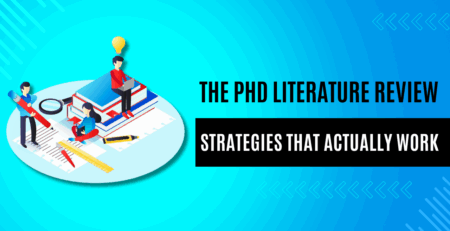Facing Social Media Addiction During a PhD: Causes, Impacts, and Solutions
Kenfra Research - Shallo2025-04-10T16:29:53+05:30A PhD journey is known for its intellectual rigor, emotional toll, and isolation. Add to this the lure of social media—scrolling Instagram reels, reading endless Twitter threads, or watching YouTube shorts—and you have a recipe for distraction and burnout. Social Media Addiction During a PhD is an under-discussed but widespread issue. It affects focus, mental health, and even research progress. Social Media Addiction During a PhD not only hampers academic productivity but also deepens feelings of anxiety and procrastination. This blog explores why PhD scholars fall into the trap of social media addiction, how it impacts their research, and what they can do to regain control.

What is Social Media Addiction?
Social media addiction is characterized by an excessive, uncontrollable urge to use social platforms despite negative consequences. It affects mood, behavior, and productivity. For PhD scholars, the problem becomes more severe due to the unstructured nature of academic work, isolation, and performance pressure.
Why Are PhD Students More Vulnerable?
- Lack of Structure: PhD programs often lack rigid schedules. The freedom is both a blessing and a curse.
- Emotional Strain: Rejection from journals, failed experiments, and supervisor conflicts can push students to seek instant gratification.
- Social Isolation: Many scholars work alone for extended periods. Social media becomes a substitute for real-life interaction.
- Fear of Missing Out (FOMO): Seeing peers publish, get awards, or travel for conferences can trigger insecurity.
- Escapism: Social media provides an easy escape from academic pressure and mental fatigue.
How Social Media Addiction Affects PhD Productivity
- Reduced Focus and Deep Work
PhD-level research requires deep concentration. However, platforms like Instagram, TikTok, and Twitter are designed to break that focus. Constant notifications and the urge to check updates make it difficult to enter the “flow state” essential for writing, coding, or analyzing.
- Procrastination and Missed Deadlines
Instead of writing a thesis chapter or conducting a literature review, scholars may find themselves watching “just one more video.” This often leads to last-minute rushes, poor-quality submissions, and missed deadlines.
- Increased Anxiety and Depression
Ironically, the more time one spends on social media, the worse they feel. Comparison with peers, academic influencers, or successful friends can breed anxiety and imposter syndrome.
- Impaired Sleep Patterns
Late-night scrolling disrupts the circadian rhythm. Poor sleep affects memory, focus, and emotional regulation—key skills for PhD success.
- Reduced Academic Output
Several studies have shown a direct correlation between heavy social media use and lower academic performance. Scholars dealing with addiction may publish less, delay thesis submission, or even drop out.
Real Stories: What Scholars Say
Here are quotes from anonymous PhD students who’ve struggled with this addiction:
- “I’d open my laptop to write, but somehow end up on Twitter for two hours. The guilt afterward was unbearable.”
- “I used to compare myself to academic influencers online. They seemed so productive. It made me feel like a failure.”
- “I’d convince myself I was networking, but I was actually wasting my time on LinkedIn without any goal.”
Strategies to Overcome Social Media Addiction During a PhD
- Set Clear Goals and Micro-Deadlines
Break your work into smaller, manageable tasks. Use goal-setting techniques like SMART goals to create clarity and purpose. Having micro-deadlines each week gives you structure and urgency.
- Use Website and App Blockers
Install productivity tools such as:
- Freedom or Cold Turkey (blocks websites)
- Forest App (rewards you for staying off your phone)
- StayFocusd (limits time on distracting websites)
Set strict limits during research hours.
- Create a Work Schedule and Stick to It
Set fixed hours for work, breaks, and leisure. Add “social media time” to your schedule, so you engage mindfully instead of impulsively.
- Practice the Pomodoro Technique
Work for 25 minutes, then take a 5-minute break. After four cycles, take a longer break. This helps balance focus and rest. You can use breaks for stretching, meditating, or brief social media checks.
- Go on a Digital Detox
Take one weekend or one day per week to completely disconnect from social media. Inform your contacts in advance if needed. This resets your brain and helps you gain clarity.
- Unfollow, Mute, or Block
Curate your feed. Unfollow accounts that trigger comparison or anxiety. Mute distractions. Follow motivational, educational content that aligns with your PhD journey.
- Seek Offline Social Support
Build real-world connections with peers, mentors, or study groups. Human interaction reduces loneliness and the need for online validation.
- Work in Public or Co-Working Spaces
Being around others—even strangers—creates accountability. Libraries, cafes, or PhD-specific co-working hubs can reduce the temptation to scroll.
- Engage in Offline Hobbies
Replace screen time with activities like walking, cooking, reading, or journaling. These fulfill the need for stimulation without being addictive.
- Therapy or Counseling
If your addiction is affecting your mental health, don’t hesitate to speak to a professional. Many universities offer free or subsidized counseling services.
How to Use Social Media Mindfully as a PhD Scholar
Social media isn’t inherently bad. When used with intention, it can benefit your academic journey.
- Twitter (X): Follow researchers, join discussions, discover CFPs (calls for papers).
- LinkedIn: Network with industry experts, find job opportunities.
- YouTube: Learn research methods, data analysis, or academic writing.
- Reddit & Quora: Ask and answer research-related questions.
Just remember to set boundaries and be selective about how and when you engage.
Final Thoughts
Social Media Addiction During a PhD isn’t a personal failure—it’s a systemic issue fueled by digital overload and academic pressure. The key to overcoming Social Media Addiction During a PhD lies in awareness, setting boundaries, and using tools that foster focus and self-discipline. By taking control of your digital habits, you can regain your time, improve your mental health, and make meaningful progress in your research.
Kenfra Research understands the challenges faced by PhD scholars and offers tailored solutions to support your academic goals. From topic selection to advanced plagiarism checking.








Leave a Reply